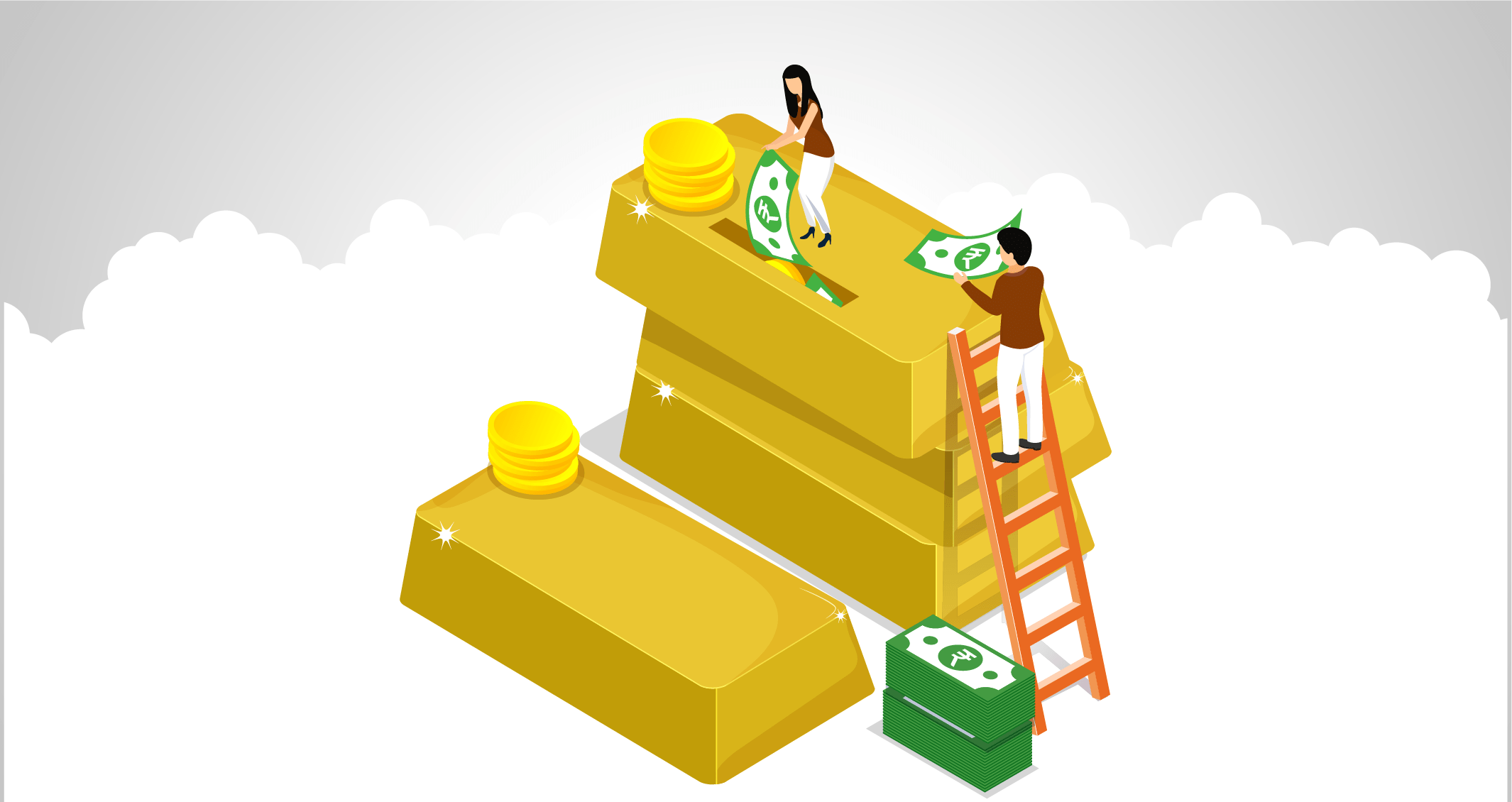Investing vs. Clearing Debt: What Should You Do With Your Bonus Check

They say money can’t buy you happiness, but it sure can free you from the clutches of financial despair. On days when the bank account figures look like a cry for help, people humourlessly contemplate illegal ways of making money. Or, better yet, they wish for miracles involving lottery tickets! While these scenarios are far-fetched and often dangled by scamsters on the internet, there are people who face opposing conundrums.
What can one do with surplus savings? Oh, you might burst into laughter. After all, what’s there to do? Purchase your wishlist items, invite your family and friends over for dinner, or party all night. As these enticing ideas further repel all rationality; you may feel something’s amiss. Maybe it’s that dal makhani from earlier. No, it’s the nagging feeling of neglect shown to your outstanding debts!
The thought of acting on those desires and splurging is tempting, but what about those loans and EMIs? Moreover, it’s time that you start seriously consider investing in traditional or non-traditional instruments.
This realisation might have dampened the fun of receiving excess cash flow. It’s okay! We all want to unleash our inner shopaholic when sudden windfall or bonus cheques arrive. However, these chunks of corpus could serve better purposes by financing investments or repaying a loan. These options lack the glamour of a new watch or spa day, but they could ease the burden of monetary constraints in the future.
Weigh the Options: Investments Vs. Debt Repayment
Now that you’ve convinced yourself to part with this windfall, here’s the good news – you don’t need to use all of it. Spare a small portion of it to reward yourself for all these months of hard work – you deserve this treat! Once that’s done, focus on matters like deciding which prospect requires immediate attention.
The best way to decide this is by weighing the options before you. Consider the benefits of financing these matters and the consequences of neglecting them.
Case #1: Investing the Corpus
Most articles will argue the importance of clearing debt first, but let’s begin by considering investing instead. Parting with your windfall can be painful for some individuals, especially if the amount was a result of immense hard work. In such cases, contemplate the benefits of investing the money.
Unlike paying off debts, this option continues to give you access to the invested funds. At any point, unless there’s a lock-in period, investors can liquidate their investments to fulfil urgent expenses. While it’s best advised to avoid liquidating assets, investing the surplus will still negate the feelings of “losing the money”. Moreover, it will help you begin investing and saving for a wealthier future!
Achieve financial independence by covering personal finance management basics like creating an emergency fund. Ideally, this corpus should be able to manage six months of expenses without any regular income. Gauge your risk appetite and draw a timeline of all your upcoming financial obligations to sync all investments. It will ensure that they mature at the time when financial needs may arise.
Investment instruments recommended:
- Public Provident Fund (PPF)
- Fixed Deposits (FD)
- Mutual Funds/Equity Linked Savings Scheme (ELSS)
- Unit Linked Insurance Plan (ULIP)
Case #2: Clear Debts with Surplus Savings
Now, let’s finally address the elephant in the room. It goes without saying that repaying your ongoing loan sooner could take the brunt off your finances. Freeing up the amount used for EMIs could allow you to re-direct that amount towards investments and other financial obligations. Moreover, paying off debts before investing is a principle of personal finance.
So, if met with the option of choosing between paying off high-interest debts or saving for the future, it’s best to deal with the former. However, this is subjective and based on your current financial condition. If you had an increment in your salary recently or these repayments haven’t disrupted your budget, paying it off sooner isn’t necessary. Though, it would be a wiser option in the long run.
If you have an unfortunate accident or encounter situations like job loss, prepaying debts would have come in handy. Avoid experiencing such incidents by prioritising high-interest debts and using the surplus to pay it all. This category includes outstanding credit card dues, personal loans, and home and car loans.
Also, solely relying on a monthly income to pay these dues could bear fiscal consequences. In the long run, you would have parted with more money as interest than saved any!
Bottom Line?
Financial experts highly advise clearing outstanding debts before making a move towards investments. However, it’s best to take such decisions after consulting a professional or thoroughly analysing your present financial condition. Unless it’s absolutely necessary, clear off the debts or consider investing them in a diverse portfolio for high returns. Additionally, some investment instruments like fixed deposits, mutual funds and PPF come with tax benefits that could boost your savings.
Wait – there’s something you must know! If there aren’t any time-bound constraints, take some more time to evaluate these options. While contemplating between them, stow away the windfall in a high-interest savings account or similar, easy-to-liquidate options. Or have you made up your mind already?
Find some of the best lucrative investment opportunities via fixed deposits or mutual funds on Bajaj Markets today!
